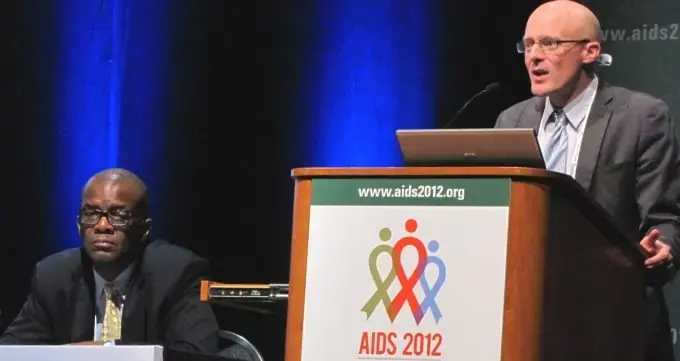Statement by UNFPA Executive Director Dr. Natalia Kanem
on World AIDS Day, 1 December 2020
On World AIDS Day, as we unite in support of people living with and affected by HIV, let us remember all those who have lost their lives to AIDS, and those who mourn them.
As the world combats another virus, COVID-19, it must not forget HIV.
While the two viruses differ in many ways, the parallels between them reflect the vulnerabilities that these viruses exploit, passing most readily to marginalized groups without access to services, information or protective equipment.
Once again, we have seen how those at greatest risk of infection and disease are the least likely to find the protection and care they need.
Key populations, such as sex workers and men who have sex with men, and their partners account for over half of all new HIV infections globally. Yet just a small fraction of all funding for HIV programmes targets them.
This is a shocking gap, and one likely to widen amid the pressures of the pandemic.
Already, the evidence is mounting that people with HIV may be more at risk of both catching COVID-19 and perishing from it. Continued efforts to keep life-saving services open for key populations, including through virtual outreach, are valiant, but not enough.
We must demolish the stigma, discrimination and marginalization that key populations confront in the battle against HIV. They have the right to protect and care for themselves on an equal footing with everyone else.
In the Sustainable Development Goals, the world has committed to universal health coverage. Let’s translate that global commitment into action, leaving no one behind.
A virus can remind us that no one is safe until we all are. That we have no time to wait. That the time to invest in equitable health services and uphold human rights is now.




